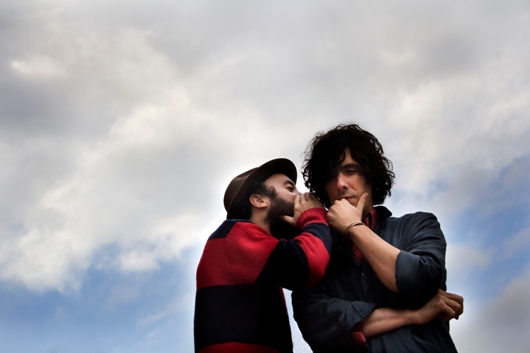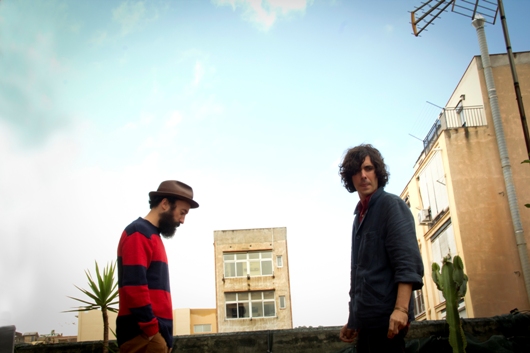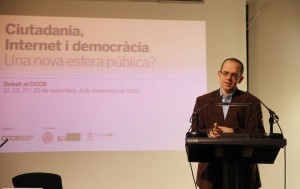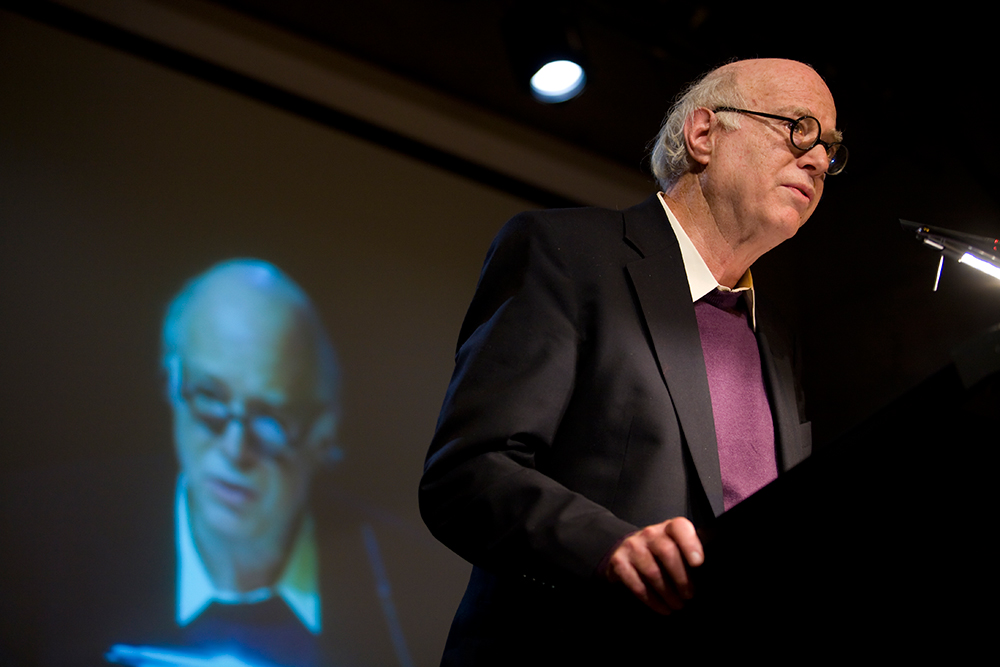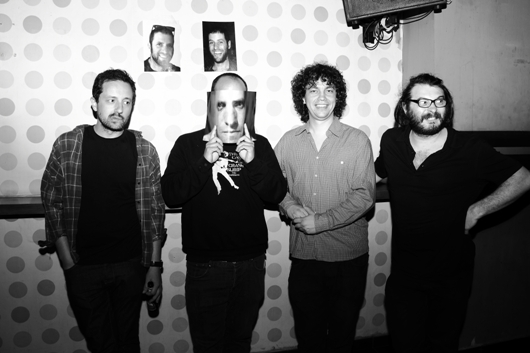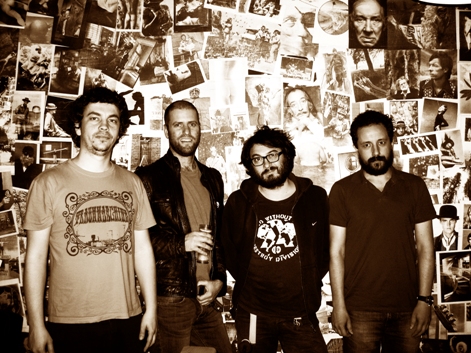Part three of the presentation of Emergència! 2014 introduces newcomers Escarlata, a collaborative experiment that takes the high road of non-conformist poetic pop previously trodden by Randy Newman, High Llamas, Robert Wyatt and Dennis Wilson.
They present Lo que me dijiste al oído se extendió por todo el mundo (Fohen, 13), one of those works that skirts the edges of today’s mercurial alternative music scene. It’s still so little known that it’s barely been heard beyond the inner circles, which are full of praise for the scope and significance of the project.
Escarlata are Remate and Israel Marco. Escarlata is the product of a spontaneous, enthusiastic coming together. Escarlata combines the talent of these two musicians with years of experience on the national scene. Madrid’s Remate, with ten albums to his name, has a vibrant personality that eludes all labels. In 2014, he also makes his debut as a writer with the publication of Suelo estar, a book inspired by one of the songs on Una araña a punto de comerse a una mosca. Israel Marco, a regular at Emergència!, has a huge and very distinctive artistic talent that he divides between various projects: Cuchillo, Caballo and Viva. He is a fine intuitive guitarist, a musician to watch when he gets up on stage: every chord, every arpeggio he plays, has something to say, and it’s often a story that exceeds the audience’s expectations.
Together, and almost without meaning to, they’ve pieced together a discourse that’s crystallized in the outline of a world halfway between dream pop and reflection. Strange but alluring. To the point and eloquent. Instrumentally complex and laborious, packed with sharp details that anticipate the next step in the narrative. Their songs tell minimum stories about lyrical, cinematographic atmospheres. They move as slowly as they can in the task of laying before us their loves and hates; the inexplicit influences of a music that is as imaginative as it is sophisticated.
Of the various projects you’re both involved in, how and why did this collaboration come about?
Initially it was Carlos Toronado who “introduced” us. He’d known me well for about ten years and just after recording Cuchillo, he thought we’d complement each other, because we were and are very different, but ethically and aesthetically we share a similar idea of music. Not necessarily in the form the music takes, but in the way we go about it. It’s a question of attitude and professionalism, I think. He thought that each would bring out the best in the other, which he saw as my lyrics and harmonies, and his overview and attention to detail. So, that was the start.
What is it about Escarlata that makes you click so naturally? How did you manage to make it all fit so well?
I hope you’re right! I feel really good about what we’ve done. We’ve always been open to a third element, not just the sum of Remate and Cuchillo. Very much relying on “inspiration”, a “still life” of songs, on an unexpected happening that made us ditch the script. That’s why we went and worked in the studio without clear objectives, with the only clear idea of coming up with something stimulating.
What are the defining characteristics of Escarlata? Fragile voices and poetic atmospheres?
That’s not something we thought about beforehand, except an Escarlata light. A Lynchian light, but not necessarily that fetishistic, just trying to take this light to other landscapes. I would say yes, it’s dream-like and feverish, but we’re talking hay fever. A bit theatrical, but in cinema form. I don’t know, I hope it’s not THAT intellectual, because it was all very instinctive.
I’d also mention this capacity to slip in some humour and reflection into that dreamlike quality that runs through the disc. What are the songs about? There are references to sport, illness, love, and so on. It’s a very eclectic thematic universe.
I think the songs deal with things that seem odd, but they don’t happen oddly, nor are they that unusual, I mean there’s nothing circus-freaky about them. They’re about the way life can be odd, and if we pick out these odd moments it’s so that we can laugh at everything, at these moments and at the ones that aren’t odd. It’s all a convention. It’s all a role we’re playing. I mean, everyone. The mechanic, the cyclist, me.
There’s a lingering air of the cinema. Is film an influence in Escarlata?
Yes. Directors like David Lynch, Alexander Payne, etc.
Escarlata Fiesta
More than musicians, the two members of the duo are music lovers. Remate picked five songs by other groups that form the duo’s musical DNA. “A cocktail with these ingredients is real ESCARLATA”, he says.
Robert Wyatt Sea song
The Glove (Steven Severin & Robert Smith) Punish Me With Kisses
John Cale & Brian Eno Spinning Away
Carpenters Superstar
The Beach Boys & Annette Funicello The Monkey’s Uncle
Escarlata will be presenting Lo que me dijiste al oído se extendió por todo el mundo on the Auditorium stage at E!2014.








